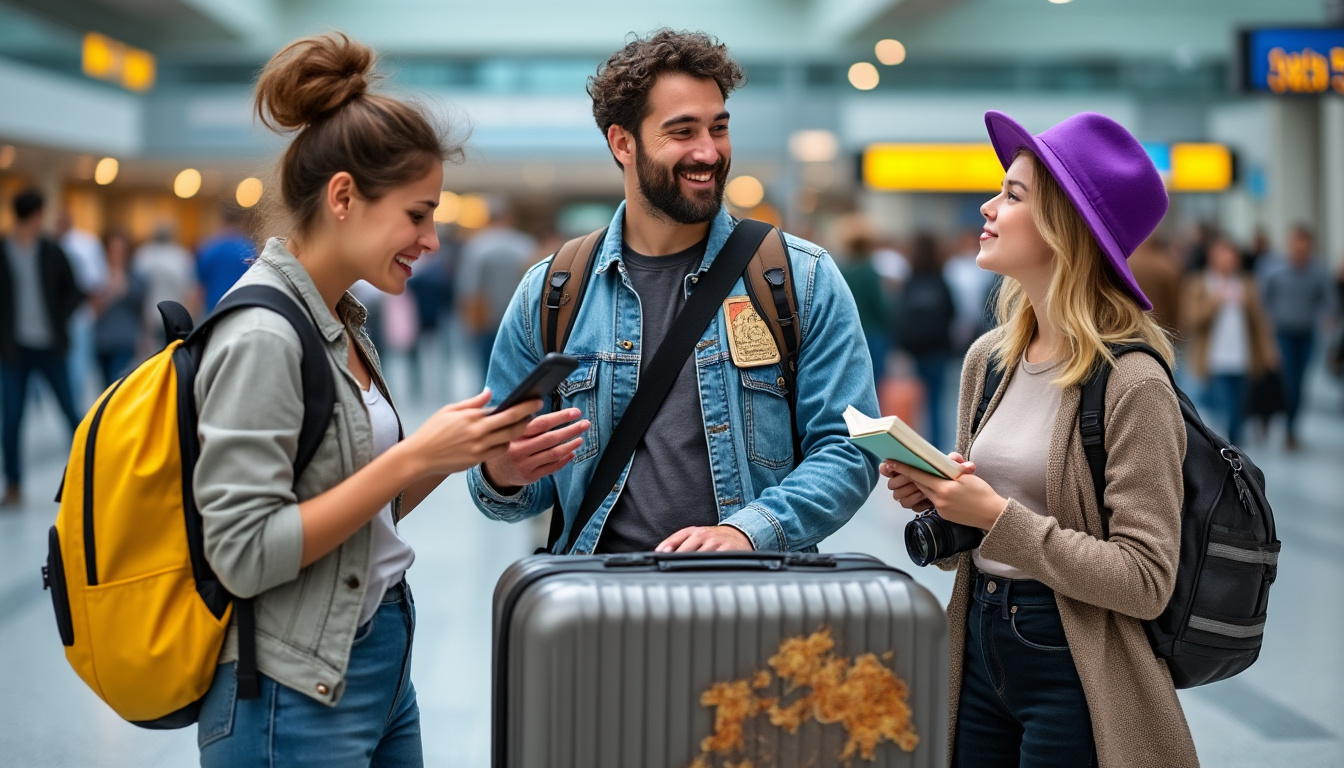In recent months, the travel industry has witnessed significant shifts in how major companies collaborate with content creators, and one of the most notable changes has come from Booking.com. This prominent online travel agency (OTA) has decided to terminate numerous partnerships with travel bloggers and influencers, leaving many in the digital content creation sphere reeling from the news. The move has raised numerous questions about Booking.com’s strategic direction and its implications for influencer marketing, especially in a post-pandemic world where creative partnerships have been essential for brand visibility.
Understanding the Shift: Booking.com’s Strategic Realignment
Booking.com’s recent notifications to content creators detailed a shift away from direct affiliate partnerships, a move attributed to a broader strategic change within the company. The emails, which have surfaced across various social media platforms, conveyed that Booking.com is no longer able to support ongoing collaborations with many of its direct partners. This information has been a source of concern for numerous travel creators who have relied on these partnerships to monetize their travel content.
The decision to pivot from direct partnerships is seen by some experts as a response to emerging trends in digital marketing. As noted by industry analysts, platforms like Airbnb, Expedia, and Tripadvisor have been pushing forward with more innovative marketing strategies, often emphasizing the importance of influencer collaborations to reach wider audiences effectively. As companies adapt to changing consumer behavior, the focus on direct affiliations may have felt outdated to Booking.com.
The implications for creators are significant, as many have built their brands around these partnerships. The recommendations offered to apply through Booking.com’s new affiliate program via the third-party platform, Awin, suggest a shift towards a more structured and possibly less personal collaboration model. This restructuring might lead to a more competitive environment among content creators, vying for limited resources within a single affiliate network instead of building individual relationships with brands.
Impact on Content Creators
The abrupt termination of these partnerships has inevitably caused a ripple effect within the content creation community. Many creators have taken to platforms like Reddit and LinkedIn to express their frustrations and uncertainties regarding their future collaborations. The general sentiment points toward a mixture of disappointment and concern about the financial implications of losing a reliable income stream.
For instance, several creators reported that the emails from Booking.com acted as a 30-day written notice, leaving little time to adapt or seek alternative partnerships. As Tony Carne, co-founder of Videreo, pointed out, this change seems to coincide with wider trends in the industry, where OTAs are looking for ways to leverage user-generated content without necessarily compensating the creators involved. The move toward automated content utilization could signal a shift in how brands value creative partnerships.
- Frustration and confusion regarding financial implications
- Concerns over the continued viability of brand partnerships
- Discussion surrounding the rise of automated content sharing
This situation invites questions about the sustainability of influencer marketing models as companies like Booking.com reassess their strategies. Creators now might need to explore alternative platforms or adapt their content strategies to align with changing market dynamics.

Exploring Alternatives: The Evolving Landscape of Affiliate Marketing
The abrupt end of partnerships with Booking.com has compelled many travel content creators to reconsider their marketing strategies and identify alternative revenue streams. As the landscape of affiliate marketing evolves, it becomes essential for creators to diversify their revenue sources to withstand these changes.
With platforms like Hotels.com, Kayak, and Trivago also active in the influencer space, content creators have opportunities to form new alliances and leverage different networks. The key will be to approach these partnerships authentically and creatively, ensuring alignment between the creator’s brand and their collaborator’s ethos.
There are several strategies creators can adopt to navigate this shifting dynamics:
- Explore Multiple Affiliate Programs: Rather than relying solely on one OTA, consider partnerships with multiple travel platforms to safeguard against sudden shifts in the market.
- Create Original Content: Build unique content that emphasizes exceptional travel experiences instead of solely focusing on promotional materials. This can engage audiences more deeply and attract potential sponsors.
- Nurture Relationships with Tourism Boards and Local Businesses: Direct collaborations with regional tourism boards can offer mutual benefits that enhance visibility while providing content creators with new opportunities.
- Utilize Social Media Marketing: Engaging with audiences on platforms such as Instagram and TikTok can increase organic reach and redirect traffic to other monetized channels.
The evolving nature of affiliate marketing serves both as a challenge and an opportunity for content creators. While losing a major partner is undoubtedly a setback, it also allows for a reevaluation and reinvention of individual brands within the travel community. This kind of adaptability is crucial for long-term success in the ever-changing digital landscape.
Consumer Expectations in 2025: Responding to Industry Trends
The changes initiated by Booking.com are reflective of broader consumer expectations within the travel sector, specifically in 2025. Today’s travelers demand authenticity, transparency, and personalization when engaging with brands. Booking.com’s decision to pivot from established partnerships could also be seen as a response to this cultural shift, recognizing that consumer preferences are evolving rapidly.
The influence of peer recommendations, especially through social media platforms, plays a pivotal role in shaping travelers’ decisions. Thus, it is essential for brands to align their marketing strategies with the preferences of modern consumers. The relationship dynamics have shifted, where brands must develop meaningful engagements rather than relying solely on influencer endorsements.
- Emphasize Authentic Narratives: Brands should focus on storytelling, allowing influencers to share their genuine experiences with products or services.
- Encourage Two-Way Communication: Engaging audiences through interactive marketing can foster a deeper connection with potential travelers.
- Participate in Sustainable Tourism Initiatives: Aligning with eco-friendly practices can appeal to a growing segment of conscious consumers.
The importance of building a resilient brand identity that resonates with target audiences cannot be overstated. As travelers increasingly seek personalized recommendations, brands must rise to the challenge of innovation and adaptability.
Case Studies: Learning from Influencer Partnerships
Amidst the changes brought about by Booking.com’s recent actions, it can be helpful to examine successful case studies in influencer collaboration within the travel sector. These examples showcase the potential of influencer marketing when executed thoughtfully and strategically.
One stellar example comes from Marriott Hotels, which has established long-lasting partnerships with numerous travel influencers to promote their various properties. Their strategy includes inviting influencers to experience and share unique stay aspects at select hotels. This approach allows for authentic content creation while amplifying brand visibility and attracting new customers.
The effectiveness of this strategy can be measured through engagement metrics, which often show a significant increase in bookings directly associated with influencer campaigns. Another notable collaboration was between Hilton and Instagram influencers during their #HiltonOnYourTerms campaign. By allowing influencers to tailor their content, Hilton successfully engaged a younger audience that resonated well with their experiences, ultimately boosting hotel reservations.
| Brand | Influencer Collaboration | Outcome |
|---|---|---|
| Marriott | Unique experiences shared by influencers | Increased brand awareness and engagement |
| Hilton | Tailored content for #HiltonOnYourTerms | Enhanced connection with younger audience |
| Airbnb | Local experiences with creators | Expanded market reach and customer trust |
These case studies underline the necessity for brands to embrace creative and mutually beneficial partnerships. The successful integration of influencer marketing campaigns enhances both brand visibility and consumer trust when done properly. In a time of transformation, these lessons serve as a guiding framework for the future direction of influencer collaborations.

The Path Forward: Navigating Challenges in Influencer Collaborations
As brands like Booking.com reshape their approach to influencer collaborations, the travel industry must engage in thoughtful discussions about the future of these partnerships. As content creators adapt to the end of traditional affiliations, it is crucial to explore new pathways that cultivate sustained relationships within the travel sector.
The following strategies emerge as potential solutions for navigating the evolving landscape:
- Investing in Quality over Quantity: Prioritize meaningful engagements and collaborations that are tailored to both brand goals and creator audiences.
- Diversifying Content Platforms: Explore new channels and mediums that can extend reach, such as podcasting, live streaming, and community engagement.
- Building Long-Term Partnerships: Focus on developing relationships with brands that foster genuine affinity and resonate with the creator’s personal brand.
Moreover, industry stakeholders should advocate for more transparent relationships between creators and brands. This transparency can build trust and lead to stronger collaborations over time.
The challenges presented by Booking.com’s significant shift in collaboration strategy can be viewed as a call to innovation within the influencer space. As content creators reassess their methods and navigate the changing tides of brand partnerships, resilience, creativity, and alignment with consumer expectations will be key elements in charting a successful path forward.
